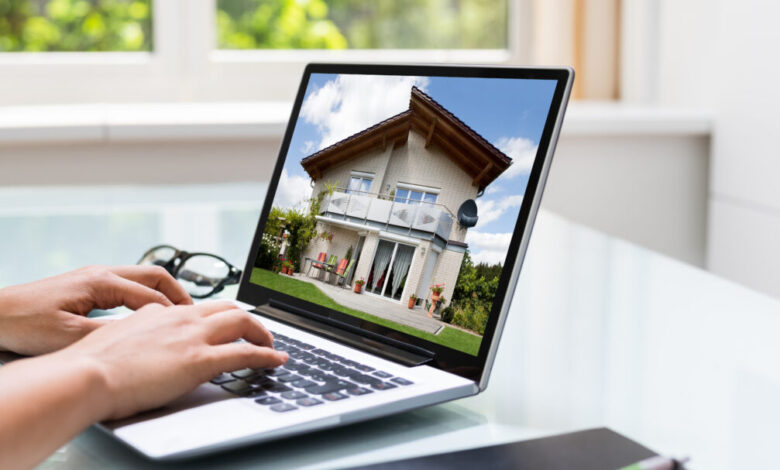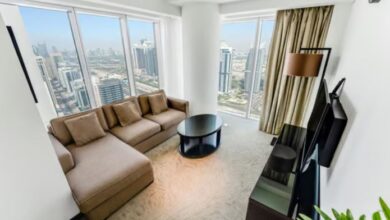How Real Estate Management Apps Are Changing the Game for Landlords

Landlords used to juggle rent collection, lease paperwork, and maintenance calls, often with nothing more than a spreadsheet and a phone. Now, real estate management apps are turning that chaos into control.
These apps offer more than convenience. They help you stay organized, respond faster, and grow your rental income without hiring extra help. If you’ve been managing everything manually, it’s time to rethink how tech can work for you.
The Traditional Approach: Time-Consuming and Disconnected
Managing rental properties used to mean spreadsheets, late-night phone calls, and piles of paperwork. For landlords with multiple units, this approach quickly became unsustainable.
Common challenges included:
- Tracking rent payments across tenants.
- Coordinating maintenance without delay.
- Managing lease renewals and paperwork.
- Communicating with tenants across multiple channels.
As portfolios grew, so did the problems. Manual methods led to more errors, longer response times, and unhappy tenants.
How Property Management Software Simplifies Landlord Tasks
Real estate management apps are replacing fragmented systems with a single platform. These apps bring automation, transparency, and convenience to routine tasks that landlords once handled manually.
Here’s how property software is changing the game:
- Automating Rent Collection and Payment Tracking
Late payments and missed reminders often strain landlord-tenant relationships. Apps like Crib let you automate rent collection through digital payment systems.
Benefits include:
- Rent reminders go out automatically.
- Tenants pay through secure, convenient channels.
- Payment status is updated in real time.
- Late fees can be applied automatically if needed.
This reduces delays, improves cash flow, and builds accountability.
- Simplifying Lease Management
Property management software streamlines lease creation, signing, and renewals. Landlords can generate digital leases, get them signed remotely, and track renewal dates easily.
This saves time and eliminates the need for in-person meetings or physical paperwork.
You also reduce legal risks. Many platforms include legally compliant lease templates tailored to local regulations.
- Improving Communication with Tenants
Good communication helps you retain tenants and solve issues faster. Real estate management apps include built-in messaging tools, so all conversations stay organized in one place.
With centralized communication, landlords can:
- Respond to maintenance requests promptly.
- Send updates and notices without group chats or mass emails.
- Keep a record of every conversation for future reference.
This also helps resolve disputes or misunderstandings efficiently.
- Streamlining Maintenance and Repairs
Coordinating repairs used to involve multiple calls, delayed vendor responses, and tenant frustration. Apps like Crib change that with automated workflows.
Tenants can submit maintenance requests through the app with photos and descriptions. You receive instant notifications, assign vendors quickly, and track repair status.
This process offers clear advantages:
- Faster repair turnaround.
- No lost tickets or unread messages.
- Better visibility into recurring issues.
Well-managed maintenance also protects your property’s long-term value.
- Offering Better Tenant Experiences
Tenants expect convenience in every aspect of their rental. Real estate management apps cater to that need through digital access, timely support, and transparent communication.
When tenants can pay rent, report issues, and access documents from their phones, they’re more likely to renew leases and leave positive reviews.
In a competitive market, this can be the edge you need to reduce vacancies and attract quality tenants.
- Scaling Your Rental Portfolio Efficiently
Managing 1–2 units manually might be possible. But once your portfolio grows, doing everything yourself is no longer feasible.
With property software, you can scale up without hiring a property manager. Automation and centralized controls let you handle more units with the same time and energy.
You get access to dashboards, financial reports, and task overviews across all your properties. This lets you spot trends, cut costs, and plan your next move wisely.
- Boosting Data Security and Compliance
Rentals involve sensitive data, including bank details, identification, lease terms, and payment history. Using spreadsheets or paper forms exposes that data to security risks.
Real estate management apps protect data through encryption, secure logins, and cloud backups. Many platforms also help with local regulatory compliance, including rent control and eviction guidelines.
This gives you peace of mind while reducing your legal exposure.
- Gaining Real-Time Insights into Your Business
Modern apps give you access to detailed reports and analytics. These help you monitor rent collection, maintenance costs, occupancy rates, and more, all from your dashboard.
You don’t need to be a financial expert. Intuitive charts and summaries help you see what’s working and where you can improve.
These insights support smart decisions like:
- Adjusting rent for better profitability.
- Scheduling preventative maintenance.
- Identifying underperforming units or vendors.
What to Look for in Property Management Software
If you’re evaluating platforms, consider your business goals. A good app should support your existing workflows while helping you grow.
Look for tools that provide:
- Mobile-friendly tenant portals.
- Automated rent and fee collection.
- Custom lease templates and e-signature support.
- Easy maintenance request tracking.
- Financial reporting and tax-ready statements.
- Secure cloud storage for all documents.
The best tools reduce your admin time and help you deliver a more professional experience to tenants.
Why Landlords Are Switching to Crib
Apps like Crib are built for landlords who want more control without added complexity. From rent collection to maintenance, Crib brings every part of property management into one simple mobile experience.
You stay informed, tenants remain happy, and your property continues to generate income without the daily stress.
Final Thoughts
Managing rental properties becomes much easier when you use the right tools. Property software takes over repetitive tasks, saving you time and lowering stress. It lets you collect rent, manage tenants, handle repairs, and keep all your important documents organized – all from your phone or desktop.
This digital approach also improves communication, speeds up maintenance, and gives you real-time insights into your rental business. With fewer manual processes, you can focus on growing your portfolio and delivering a better experience to your tenants.
If you want to simplify property management and improve tenant satisfaction, it’s time to try Crib.




